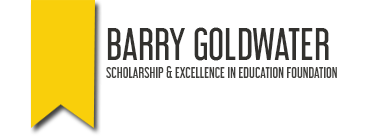Had it not been for a high school physics class and the early involvement in research as a Rutgers undergraduate, a promising young female physicist may never have been discovered!
“I thought I’d study art in college,” junior physics major Jennifer Coulter said when she was being interviewed for Rutgers Today after learning she had won a Goldwater scholarship. “That’s until I took Rutgers alumnus Stephen Godkin’s physics class at Communication High School,” she went on to say. “I did an about-face. I went into the class thinking I would fail, and came out with an entirely different perspective on math and science. I would not be a Goldwater Scholar today had it not been for that class.”
Coulter also credits Rutgers’ research-oriented undergraduate program and her Rutgers mentors for her success. Her first of three research projects – two in materials science and one in high energy physics – started in the spring of her freshman year. Jenny worked with Rutgers School of Engineering faculty member, Dr. Dunbar Birnie III, to increase cuprous oxide’s practical efficiency as a solar cell material. Coulter then worked with Dr. Birnie on a study that focused on computational methods of assessing the Tauc method of measuring band gaps. At the start of this work, the accuracy of the method was in question. By extracting data points from a large sample of published Tauc plots and looking for trends related to measurement bias, the team was able to form a statistical analysis of the method for indirect materials. Jenny’s third project was in an entirely different area of physics, high energy physics, and used data from the Large Hadron Collider (LHC). Jenny joined the Department of Physics and Astronomy group of Dr. Sevil Salur and worked on her own project in which she analyzed LHC data, with the goal of producing calculations of a variable know as thrust, a measure of jet distribution symmetry in a high energy collision.
As Jenny reflects back on her education, she notes that “up through my sophomore year of high school, I was artistically gifted, an avid reader and a hard worker. But, there was never anyone to suggest I try science, perhaps, in retrospect, because I am a female. It wasn’t until I took physics that I was able to see the merit and beauty in mathematics. It was unlike anything that I had ever experienced, and the logical structure of solving problems I developed changed the way I learn irrevocably. Yet, as I’ve grown as a physics student, I’ve come to believe that what I enjoyed most in art is what makes me love research. The process of making observations, of using what I know as reference, and of identifying patterns in nature has not changed. My background in the process of artistic design causes me to think creatively as I develop solutions to scientific issues.”
Regarding the Goldwater, Coulter went on to say, “I’m completely honored to represent my university and department as a Goldwater Scholar. I know the Goldwater Scholarship will help me to make the most of my excitement for physics as I progress in my career and go on to mentor other young science students.”
** Rutgers Today, Todd B. Bates (4/11/2016)
“For us to have one is nice,” says Mohan Kalelkar, a veteran physics professor. “For us to have seven in a row really says something about the department.”

